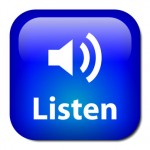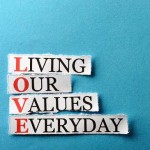 What’s so special about therapy anyway? Isn’t it just a super long conversation with a stranger?
What’s so special about therapy anyway? Isn’t it just a super long conversation with a stranger?
No, it’s not. It’s much more. It can feel like the millions of conversations you’ve had in the past but with one major twist.
When done right therapy elicits the truth; you know that thing you hide from everybody.
Most people aren’t totally honest about their inner world because humans are damn good liars, which isn’t all bad.
Lying serves an important function in that it helps us to keep on a pretty mask so the “ugly” doesn’t scare away our friends and family.
That’s what makes therapy useful. It creates a safe place to talk about things that are usually taboo or sensitive.
And although a therapist is the farthest thing from a friend, they are in fact human beings that provide other human beings with an opportunity to spill the beans, dare I say explore the soul, without all the dangers associated with talking to people you know in a “real” way.
Therapists are also able to assist you with developing skills that will help you to identify issues that need to be addressed and guide you through the process of choking out your inner demons; or something like that.
The problem is that therapy doesn’t always work. There are a million reasons why therapy could end in failure, but I also know that there are steps you can take, aside from being brutally honest, to ensure that you get the most out of your therapy sessions.
In today’s episode of the Anxiety Guru Show I share four tips that will help you squeeze everything you need from therapy so you can decrease your bad nerves and get your life back on track.
Click the icon below to listen now and leave your comment below.




I haven’t had much luck with therapists. For me it’s about body tension, I have used yoga to help with this. And I use herbal remedies, from this list. https://greenlivingideas.com/2014/04/19/top-ten-natural-home-based-therapies-for-anxiety-and-panic-attacks/
Paul I first want to thank you for creating such a valuable resource. I was first diagnosed with GAD/panic disorder when I was 22 following what at the time I thought would be the worst panic attack I would ever have. Fast-forward 13 years, a marriage, and two kids and I had what I would describe as the most terrifying experience of my life. A had a panic attack that culminated in a two week depression that I thought I would never recover from. I succumbed to my obsessive/fear based thinking and became the self fulfilling prophecy. Up to that point I had been in out of therapy. I tried CBT, psychoanalysis, and even group. I believe therapy is a truly beneficial tool. But it is just that, a tool. Albeit, probably one of the most important. It is part of the arsenal of tools such as meditation, on line resources, books, and medication. The trick with therapy is that it is a two way street. You have to be willing to make an effort as a client. But there must be a solid rapport and trust to be able to open up to a stranger about all your ” stuff ” that we all believe is unique to us…even though we all have stuff. Just as in one of your previous blogs where someone commented that people tend to gravitate to your site and other resources when their anxiety symptoms arise but when we are feeling good we want to stay as far away these things as we can and hold onto that bliss of the moment…I believe we probably are more honest with our therapist about our daily struggles when we are aware of them or in acute crisis and we hold back when we are managing because we want to hold onto that moment of serenity so we end up having those sessions of nothing noteworthy. It took me several therapists and several styles. While I believe strongly in psychoanalysis, I think once you get where your issues arise from, the therapy needs to be about coping with the anxiety and how to change your thought process and shift towards some form CBT. A mix of both is great. I will say many of my other tools would have failed without having the guidance of an unbiased person to provide me with guidance and feedback. To anyone who feels alone and doomed with overwhelming dread from anxiety, please remember you are not alone and it too will pass.
Paul….thanks for all your podcasts. They are very informative. It has helped me thru the week. Thanks again
I’ve seen several meta-analysis that state that CBT is the most effective form of therapy for anxiety disorders. However, it seems (from my own experience) that the problem with delivering CBT effectively is the amount of properly trained therapists. I feel like the therapists I’ve had only engage in talk therapy without giving me “homework” or things to work on. I’m still suck in a horrible anxiety loop, and I badly want to see a light at the end of the tunnel. Hopefully the therapist I’m seeing in two weeks will be helpful :/
Hey anxietyfighter, I totally agree. Training is a big issue for a lot of therapists. If you’re going the CBT route I always encourage working with someone who not only has been trained in CBT but that can also prove it via certifications. This is important if you’re looking for a therapist who can follow the model properly.
What other option do you recommend if you can’t afford to go to therapy?